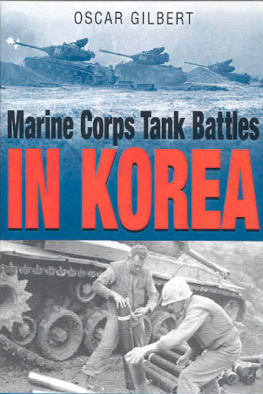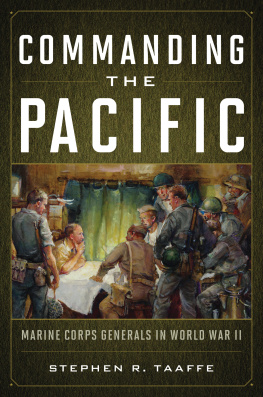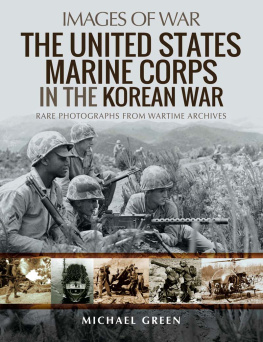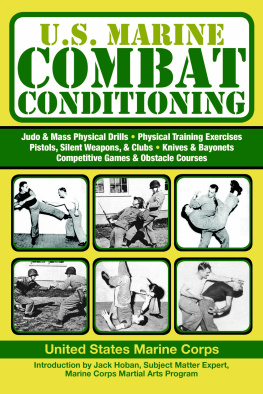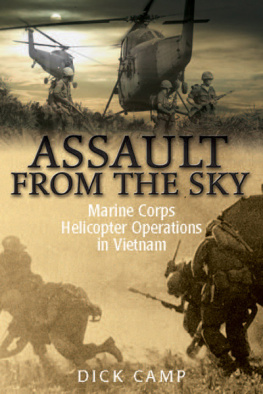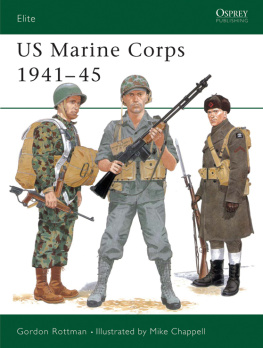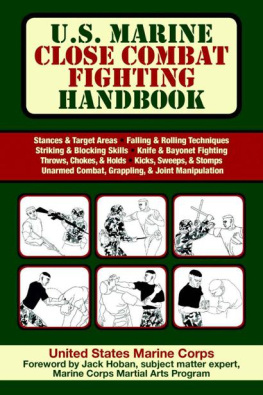for
Country
and CORPS
This book has been brought to publication with the generous assistance of the United States Naval Academy Class of 1945.
for
Country
and CORPS
THE LIFE OF
GENERAL
OLIVER P. SMITH
GAIL B. SHISLER
NAVAL INSTITUTE PRESS
Annapolis, Maryland
Naval Institute Press
291 Wood Road
Annapolis, MD 21402
2009 by Gail B. Shisler
All rights reserved. No part of this book may be reproduced or utilized in any form or by any means, electronic or mechanical, including photocopying and recording, or by any information storage and retrieval system, without permission in writing from the publisher.
Shisler, Gail B.
For country and Corps : the life of Gen. Oliver P. Smith / Gail B. Shisler.
p. cm.
Includes bibliographical references and index.
ISBN 978-1-61251-176-4 1. Smith, Oliver Prince. 2. Generals--United States--Biography. 3. United States. Marine Corps--Biography. I. Title.
E745.S617S55 2009
355.0092--dc22
[B]
2009025841
All photographs are from the authors collection except where otherwise noted. All maps were created by Chris Robinson.
14131211100998765432
First printing
For Michael
Semper Fidelis
CONTENTS
H e was just my grandfathersomeone whose large hand would close over my small one when we went for walks, someone who would always make room for me to join him in his large, green leather chair. I might have noticed that he went to work in a uniform with stars glinting on his shoulders, but it meant nothing to me. He was simply the man who would play a game of croquet with me after dinner, or let me help him with his nightly games of solitaire.
As my father was killed in World War II, my grandfather filled an important place in my life. I lived with him full time as a small child, moving with my grandparents from white clapboard quarters on the Marine Base at Quantico, Virginia, to a three-story brick house at the Marine Barracks at 8th and I Streets in Washington, D.C., to the bougainvillea-covered Ranch House at Camp Pendleton, California, to the widow-walked Michigan House on the Naval Base in Norfolk, Virginia.
As I grew up, I began to understand to some extent who he was and what he had done with his life. Although he was reserved even in the midst of the family circle, I easily understood from my earliest years that his warm heart was close to the surface. I admired his quiet, steadfast manner and his unruffled, gentlemanly behavior. And I loved him as a kind, caring grandfather. In college I wrote my senior thesis on his actions in the Korean War. He was very patient with my efforts, enjoying having a family member, no matter how nave, take such an interest in his past. It was a period I wish I could have back again. Later, I visited him often while my Marine husband was in Vietnam, and he took in stride the addition of great-grandchildren in his house.
But it was not until I began writing this biography that I understood what a great man he had truly been. And his greatness lay not so much in the events that marked his life, but in his response to those events. While he had an unswerving adherence to principle, it was infused with a great understanding of the human heart.
His was not an easy climb to the top. He had emerged from World War I a captain who had served in the Pacific rather than in France. In a combat organization such as the Marine Corps, he knew he had one strike against him because of it. In fact one of his contemporaries would comment to him at the end of that war: I suppose you were out in the Pacific counting the casualties among us that were over in France. For Smiths response to the challenge had been to work hard at whatever job he was given. He had been determined to make it to the top, but never at the expense of others. He never politicked for an assignment, never angled for favored subordinates, and never was less than loyal to his friends or to those with whom he served.
His papers in the archives at the Marine Corps University at Quantico, Virginia, comprise forty-nine boxes of letters, narratives, official correspondence, memorabilia, maps, and his unpublished memoirs. It is a written record of unusual depth and immediacy, much of it written either during the events described or directly afterward. But among all this writing there are very few insights into his inner feelings and emotions, even in the letters to his wife. His reserve was legendary.
His historical persona stands frozen in time, like a statue of Roman generalopaque eyes showing nothing of the man within, the still form silently depicting the virtues of veritas, dignitas, and gravitas. And engraved on the base of this statue could be these words from Marcus Aurelius, the philosopher, soldier, and statesman: Things have no hold on the soul. They have no access to it, cannot move or direct it. It is moved and directed by itself alone. It takes the things before it and interprets them as it sees fit.
He was often urged to write his memoirs, but he steadfastly demurred. He would do so only if he could be honest, and in being honest he would have to be critical. This he refused to do. Thus, he left his story in the hands of future historians, trusting that the record would speak for the man. But while the record of his Marines in Korea still shines down the years, the story of the man who led them has not been fully told. In truth, he probably would not have minded this. His pride had never been in what he had achieved, but in what the 1st Marine Division had accomplished. He would say over and over again that no unit in Korea could have done what his Marines had done. For thirty-eight years the Marine Corps was his life, culminating in the stand he made with his Marines in the high, winter-blasted mountains of North Korea. His is a life that deserves to be examined, not only for the events of which he was an integral part, but for his response to those events.
Thus, this biography is not a lens through which to view a particular military campaign, or a certain period in American history, or even the institution of the Marine Corps itself, although all of these are of necessity a great part of it. The focus of this volume is upon the remarkable character of a man whono matter what the trials, no matter what the circumstancenever abandoned his principles. This is the journey of that rarest of beingsa good man.
AAA | antiaircraft artillery |
ADC | assistant division commander |
amtrac | amphibious tractor |
BAR | Browning automatic rifle |
CCF | Chinese Communist Forces |
CG | commanding general |
CGFMFPac | Commanding General, Fleet Marine Force, Pacific |
CINCLANT | Commander in Chief, Atlantic Forces |
CMC | Commandant of the Marine Corps |
CNO | chief of naval operations |
CO | commanding officer |
CP | command post |
DSC | Distinguished Service Cross |
DUKW | amphibious military personnel carrier |
FAC | forward air controller |
FMF | Fleet Marine Force |
FMF Pac | Fleet Marine Force, Pacific |
G-1 | deputy chief of staff, personnel |
G-2 | deputy chief of staff, intelligence |
Next page

